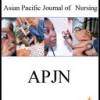Abstract
Title
CHALLENGES IN LIFE AFTER STROKE: A METASYNTHEIS
Author
Mamta Choudhary*, S.K.Mohanasundari, Surendra Kumar Trivedi
Email
roshinikrishitha@gmail.com
keyword
CINAHL, Social Sciences Citation Index, Stroke.
Abstract
Stroke being one of the major chronic illnesses world-wide, needs to be addressed by the health-care organizations. Stroke can affect virtually all human functions, and unlike other disabling conditions, the onset of stroke is sudden, leaving the individual and the family ill-prepared to deal with its squeal. A single qualitative study is not adequate to understand effect of stroke on stroke survivors. Thus the present review was conducted to identify, compare and synthesize published qualitative evidence to have in depth understanding of quality of life after stroke. Published articles were identified from the Medline, CINAHL, Social Sciences Citation Index, PsychInfo, a hand search through selected journals published since 2005, and from references lists. The articles were assessed for their relevance to the focus of interest and appraisal for rigour. The key themes were extracted from the data and were summarized, compared and synthesized. The search identified 64 papers with potential relevance to the review question, of which 6 articles met the review criteria for relevance. A total of 84 samples aged between 18 to 77 years from 6 studies were recruited for data collection. The themes identified were social relationship, psychological status, physical status and environmental impact and coping strategies. The results of research review supports that stroke clients were having a good coping in-spite of having a strained social relationships, psychological distress, poor environmental and family support with various degrees of physical deficits. The results of research review supports that stroke clients were having a good coping in-spite of having a strained social relationships, psychological distress, poor environmental and family support with various degrees of physical deficits. In order to enhance a positive coping further, they need special education and training focusing on their emerging needs. Social interactions need to be improved to overcome impact of psychological distress. Health care facilities should be made available, accessible and strengthened with skilled manpower to serve the stroke clients in a better way. Family members need to be made aware and trained to meet various needs of the clients. Regular follow up and counseling services should be strengthened for both stroke clients and family members for their changing needs, roles and functions.













